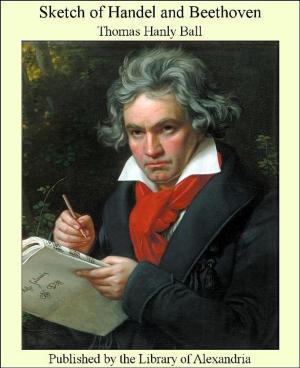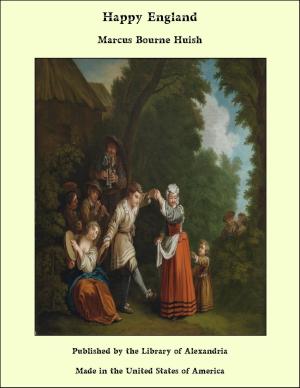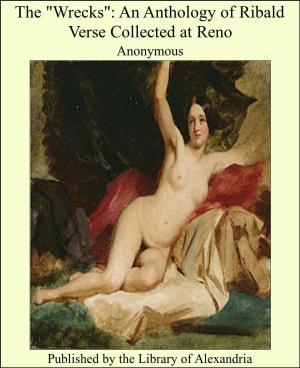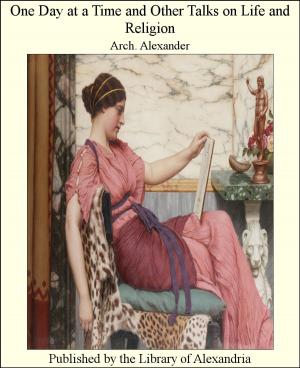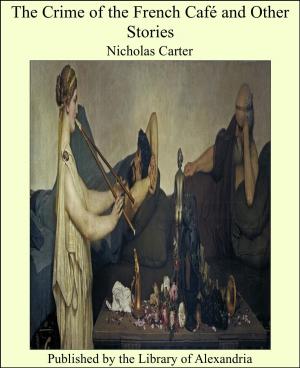A Fair Mystery: The Story of a Coquette
Nonfiction, Religion & Spirituality, New Age, History, Fiction & Literature| Author: | Charlotte Mary Brame | ISBN: | 9781465604712 |
| Publisher: | Library of Alexandria | Publication: | March 8, 2015 |
| Imprint: | Language: | English |
| Author: | Charlotte Mary Brame |
| ISBN: | 9781465604712 |
| Publisher: | Library of Alexandria |
| Publication: | March 8, 2015 |
| Imprint: | |
| Language: | English |
How have I borne it all this time? she asked herself, with a flush of anger on her fair face. "Yet, why should I be angry, and in what differ from them? Why should I be vexed or angry? Mattie would have talked for an hour—would have given a sensible answer, while I feel as though I had been insulted. They are my own mother and sister—why am I so different from them? Why does a bird of paradise differ from a homely linnet? Why does a carnation differ from a sun-flower? I cannot tell." She could not tell. It was not given to her to know that all the characteristics of race were strong within her. But that little scene decided her; there had been some faint doubt in her mind, some little leaning toward Earle, and his great wealth of poetry and love—some lingering regret as to whether she was not forsaking the certain humble paths of peace and virtue for a brilliant but uncertain career. "If I do this," she had thought to herself, "I shall kill Earle," and the idea had filled her mind with strange pathos. But all that vanished under one unskillful touch. Writing her story, knowing her faults, I make no excuses for her; but if she had had more congenial surroundings the tragedy of her life might have been averted. She stood by the open window and thought it all over. The rich scent of the roses came in and clung to her dress and her hair; the blue sky had no cloud; the birds sang sweetly and clearly in the far distance; she heard the lowing of the cattle and the voices of the laborers. Then her whole heart turned in disgust from her quiet home; it had no charm for her; she wanted none of it—she wanted life, warmth, glitter, perfume, jewels, the praise of men, the envy of women; she wanted to feel her own power, and to be followed by homage. What was her bright loveliness for if not for this? Stay here, where all the people were persecuting her about marrying Earle, having a respectable home, and buying gray calico! No, not for such a commonplace life. The beauty of hill and sky, and quaint meadow and shady lane, of blooming flowers and green trees, was not for her; it was dull, tame and uninteresting. The greatest queen in all the wide world had admired her face. Was she to remain hidden in this humble, lowly house, where no one saw her but Earle and the few men whom business brought to the farm? It was not to be imagined. She raised her beautiful head with a clear, defiant gaze. "I do not care," she said to herself, "whether it is right or wrong; I do not care what the price or penalty may be, I will go and take my share of what men and women call life." And from that resolution, taken on a calm, bright summer day, under the golden light of heaven, with the song of the birds in her ears, she never once swerved or departed, let it cost her what it might.
How have I borne it all this time? she asked herself, with a flush of anger on her fair face. "Yet, why should I be angry, and in what differ from them? Why should I be vexed or angry? Mattie would have talked for an hour—would have given a sensible answer, while I feel as though I had been insulted. They are my own mother and sister—why am I so different from them? Why does a bird of paradise differ from a homely linnet? Why does a carnation differ from a sun-flower? I cannot tell." She could not tell. It was not given to her to know that all the characteristics of race were strong within her. But that little scene decided her; there had been some faint doubt in her mind, some little leaning toward Earle, and his great wealth of poetry and love—some lingering regret as to whether she was not forsaking the certain humble paths of peace and virtue for a brilliant but uncertain career. "If I do this," she had thought to herself, "I shall kill Earle," and the idea had filled her mind with strange pathos. But all that vanished under one unskillful touch. Writing her story, knowing her faults, I make no excuses for her; but if she had had more congenial surroundings the tragedy of her life might have been averted. She stood by the open window and thought it all over. The rich scent of the roses came in and clung to her dress and her hair; the blue sky had no cloud; the birds sang sweetly and clearly in the far distance; she heard the lowing of the cattle and the voices of the laborers. Then her whole heart turned in disgust from her quiet home; it had no charm for her; she wanted none of it—she wanted life, warmth, glitter, perfume, jewels, the praise of men, the envy of women; she wanted to feel her own power, and to be followed by homage. What was her bright loveliness for if not for this? Stay here, where all the people were persecuting her about marrying Earle, having a respectable home, and buying gray calico! No, not for such a commonplace life. The beauty of hill and sky, and quaint meadow and shady lane, of blooming flowers and green trees, was not for her; it was dull, tame and uninteresting. The greatest queen in all the wide world had admired her face. Was she to remain hidden in this humble, lowly house, where no one saw her but Earle and the few men whom business brought to the farm? It was not to be imagined. She raised her beautiful head with a clear, defiant gaze. "I do not care," she said to herself, "whether it is right or wrong; I do not care what the price or penalty may be, I will go and take my share of what men and women call life." And from that resolution, taken on a calm, bright summer day, under the golden light of heaven, with the song of the birds in her ears, she never once swerved or departed, let it cost her what it might.



